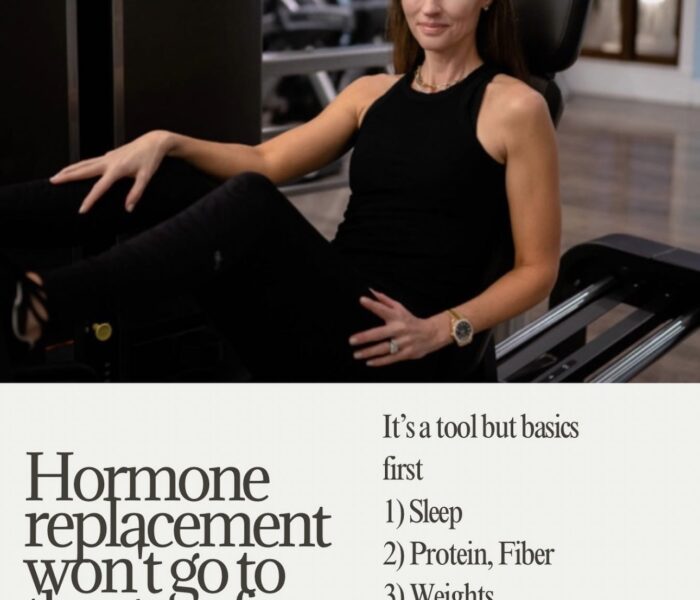Perimenopause can start 10 ears before menopause. Menopause is defined as not having a period for 12 consecutive months.
Estrogen deficiency during perimenopause can result in increased bone resorption (breakdown) without a corresponding increase in bone formation. This imbalance can lead to a decrease in bone density and an increased risk of fractures.
The years leading up to menopause and the early stages of perimenopause are associated with accelerated bone loss. Women can lose an average of 2%-3% of their bone density per year during this period.
Hormone Replacement Therapy (HRT) can help stabilize estrogen levels and prevent excessive bone loss. It makes absolutely no sense to wait until menopause to start HRT when so much bone loss has already occurred, and most women have already endured negative symptoms like loss of sleep, hot/warm flashes, irritability, joint pain, hair loss, for years before menopause.
By maintaining adequate estrogen levels through HRT, women in perimenopause can reduce their risk of developing osteoporosis.
We’re not just concerned with bone health during perimenopause and menopause, we need to be thinking about our brains. I mean, what’s the point of being able to hike in your 90s if you forget how to get home?
Women are nearly twice as likely to develop Alzheimer’s than men. This is in large part due to hormonal changes.
It is estimated that 80% of women experience neurological symptoms during menopause transition
The amount of estrogen, and the neurological receptors for estrogen change in menopause, in particular the hypothalamus, prefrontal cortex, hippocampus, and amygdala.
Decreases in estrogen has a direct impact on how the brain glucose metabolism functions and often results in cognitive decline.
HRT has particular benefit to women who carry the APOE4 gene,
Having said all of that, there is no magic pill that holds the key to longevity.
Hormones decline with age and replenishing them can help greatly, BUT,
If you don’t get the basics down, they won’t do what you’re expecting them to do.
Many 20 year olds have enough estrogen and progesterone but they’re still sick.
Hormones are just one piece of a very complex puzzle, yet with all the complexities, the basics are crucial.

Leave a Reply